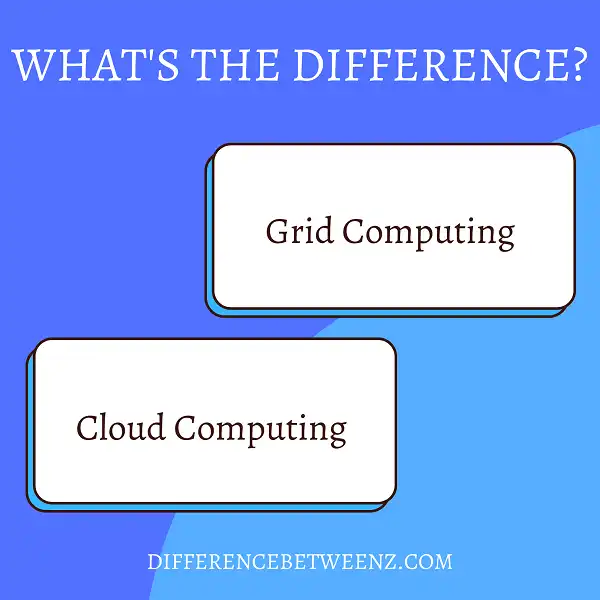People often ask the question, “What’s the difference between grid computing and cloud computing?” In this blog post, we’ll outline the key differences between grid computing and cloud computing. We’ll also discuss the benefits of each type of computing. Stay tuned for more information!
What is Grid Computing?
Grid Computing is a type of distributed computing whereby a group of interconnected computers shares resources to complete complex tasks.
- This type of computing is often used for large-scale projects that require a high degree of computing power, such as weather forecasting or protein folding.
- Grid Computing can be contrasted with traditional supercomputing, which typically relies on a single powerful computer to complete a task. Grid Computing instead distributes the task across many different computers, each of which contributes a small amount of processing power.
- This approach has several advantages, including improved reliability (since no single point of failure can bring down the entire system) and increased flexibility (since different types of computers can be used, depending on their availability).
Grid Computing is an important tool for scientific research and is expected to become increasingly important in the years to come.
What is Cloud Computing?
Cloud computing is the ability to access information and applications over the Internet. Cloud computing is a type of computing that relies on sharing computing resources rather than having local servers or personal devices to handle applications.
- Cloud computing allows consumers and businesses to use applications without installation and access their personal files at any time, anywhere there is an Internet connection.
- Cloud computing is a model for enabling ubiquitous, convenient, on-demand network access to a shared pool of configurable computing resources (e.g., networks, servers, storage, applications, and services).
- Cloud computing has become a popular way to access services because it offers many advantages over traditional methods. Cloud computing is a cost-effective way to store and share data, as well as providing Disaster Recovery capabilities.
Additionally, cloud computing can improve collaboration among employees and offer flexibility in the workplace.
Difference between Grid Computing and Cloud Computing
Grid Computing and Cloud Computing are two different approaches to distributed computing.
- Grid Computing involves connecting computers in a grid so that they can share resources and work together on a common task.
- Cloud Computing, on the other hand, involves providing access to remote computing resources via the internet.
- Grid Computing is often used for scientific and engineering applications that require high-performance computing, whereas Cloud Computing is more commonly used for general-purpose applications such as web hosting and email.
However, both Grid Computing and Cloud Computing can be used for any type of application that can be run on a distributed system.
Conclusion
Grid computing and cloud computing are two of the most talked about buzzwords in technology today. They both have a lot of benefits, but they also have their drawbacks. It can be hard to decide which one is right for your business. In this article, we’ve outlined the key differences between grid computing and cloud computing so that you can make an informed decision about which one is best for you.


